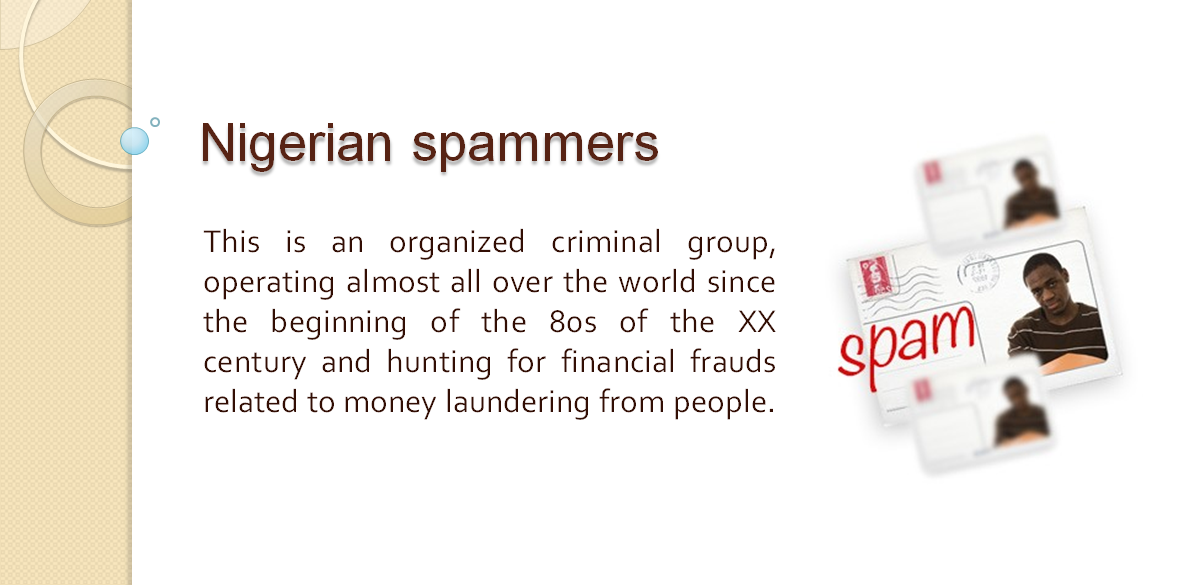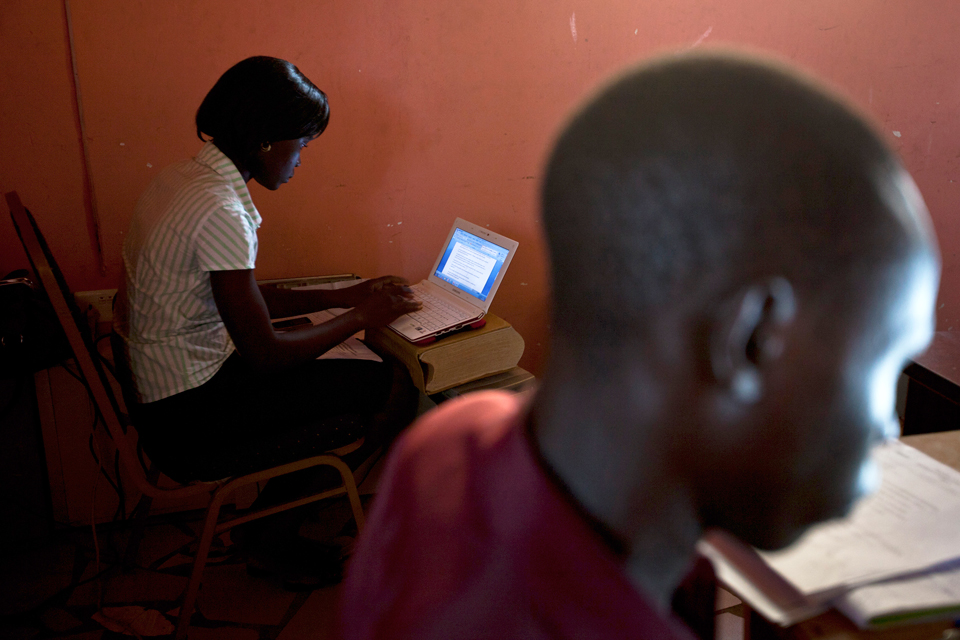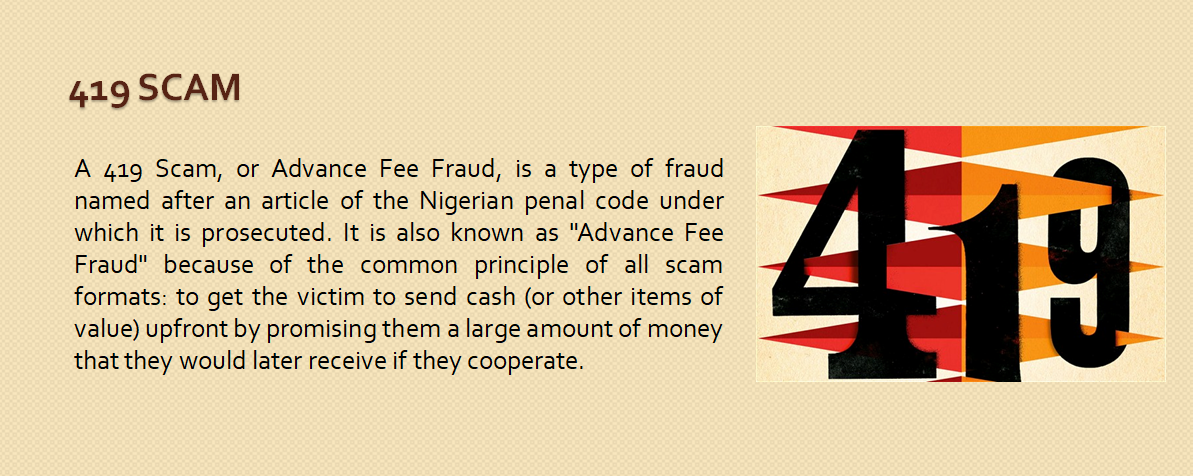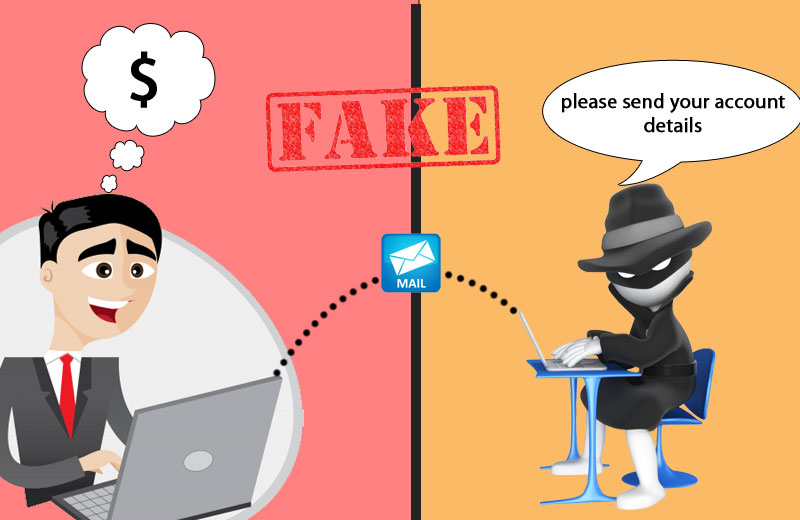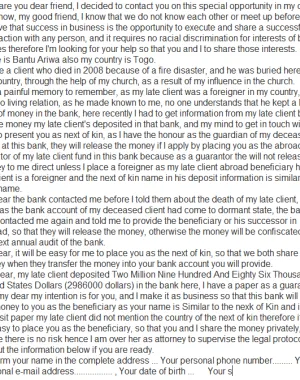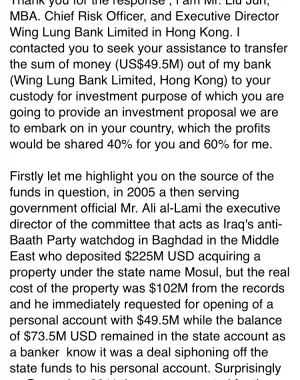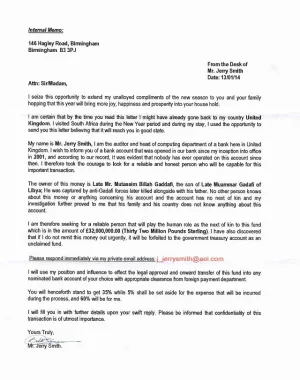
Advance-fee scam. Hello from Nigeria!
Have you ever received an email asking for help in conducting a multi-million dollar money transaction with good commissions? Did the widow of President Zaire appeal to you with such a proposal? Or maybe the daughter of the former president of Liberia? If so, then with a high degree of probability you were tried to deceive the notorious Nigerian spammers.
“Advance-fee scam” – the type of fraud that has received the most development with the advent of mass mailings by e-mail (spam). This type of fraud was especially widespread in Nigeria, and even before the advent of the Internet, when such letters were distributed by regular mail.
The history of “Nigerian letters”
Before the mass distribution of the Internet, Nigerian letters were sent to recipients by hard mail or fax. Since the beginning of the 2000s, a wave of African messages on a monetary topic has literally swept the World Wide Web.
“And what does the“ Nigerian letters ”have to do with it?” You ask. History shows that the whole idea began with the fact that a certain Nigerian prince, being in disgrace in his gracious Nigeria, appealed to everyone with a proposal to lend him a certain amount of money and, thereby, help him to flee the country. And since he had plenty of stolen budget money in one of the Swiss banks, which he could not withdraw at the local Nigerian savings bank, he vowed to give the money he had borrowed ten times as soon as he got out of his homeland. And, I must say, many brothers in mind on this Nigerian prankster burned out on very round sums.
What do they write in Nigerian letters?
A variety of subjects of Nigerian fraud have long been well studied by law enforcement agencies in different countries. Nevertheless, even this does not prevent criminals from annually making hundreds of millions of dollars (!) Of unsuspecting “victims” around the world.
Most often, letters from unknown recipients come on behalf of prominent persons: royal families, senior officials or the richest businessmen from Central African countries (Nigeria, Zaire, Angola, Central African Republic, etc.).
The logically sustained message sets forth the primary information necessary for a fish to peck. For example, an offer to make easy money by participating in a completely legitimate transfer of astronomical amounts from Africa to Europe. All that needs to be done is to provide an account through which money should go, and after transferring it, transfer them to another European account. A small amount (from $ 100 thousand and above, depending on the offer) can be left to yourself as a reward for the service. First, of course, it is necessary to pay modest expenses for the mythical service of the operation by an African bank.
In addition to Nigerian princes and Angolan politicians, letters of request for assistance in financial matters can also be sent by bank employees of various African structures.
An example of a Nigerian letter allegedly on behalf of the wife of former dictator Zaire Mobutu:
Dear friend,
I am Mrs. Sese-seko widow of late President Mobutu Sese-seko of Zaire, now known as Democratic Republic of Congo (DRC). I am moved to write you this letter. This was in confidence considering my present circumstance and situation. I escaped along with my husband and two of our sons Alfred and Basher out of Democratic Republic of Congo (DRC) to Abidjan, Cote d’ivoire where my family and I settled, while we later moved to settled in Morroco where my husband later died of cancer disease.
I have deposited the sum Eighteen Million United State Dollars (US$18,000,000,00.) With a security company for safe keeping. What I want you to do is to indicate your interest that you can assist us in receiving the money on our behalf, so that I can introduce you to my son (Alfred) who has the out modalities for the claim of the said funds. I want you to assist in investing this money, but I will not want my identity revealed. I will also want to acquire real/landed properties and stock in multi-national companies and to engage in other safe and non-speculative investments as advise by your good self.
Yours sincerely,
Mrs. Mariam M. Seseseko.
Nigerian scammers. Inside look
Why do they write from Nigeria?
Nigeria is not the poorest state in Africa. However, having large oil deposits, the country has long suffered from political instability and corruption of the highest rank. Nigeria’s oil money often goes into the bureaucratic pocket, leaving the people – the rightful owners of mineral deposits – with nothing.
The high crime rate associated with the low income level of the country’s population in the early 80s of the 20th century provoked an increase in the number of fraudsters specializing in financial fraud in the country.
Many experts involved in the fight against criminals believe that graduates of Nigerian universities, who subsequently are not able to find decent work in their country, play a large role in the formation of gangs.
In addition to Nigeria, which became the founder of the criminal business, fraudulent letters also come to recipients from other African countries: Angola, Benin, Gabon, Ghana, Liberia, The Gambia, Somalia, South Africa, etc.
In which countries do the scammers live?
With a high probability, the number of “Nigerian” letters includes similar “greetings” coming from London, Paris, Berlin, Madrid, Dubai and other large cities, where a large diaspora of Central African immigrants lives.
Scammers may be represented by residents of these countries
The scheme of online fraud using “Nigerian letters”
At the first stage, hundreds of thousands of emails with various offers of cooperation are distributed on the Internet through the network. Of course, most of those receiving such letters will be deleted. But there always remains a small percentage of gullible citizens who are willing to make some money.
It is at that moment when the scammers receive a response letter from the recipient asking what and how to do, not just plain poor English-speaking Africans come into the business, but highly qualified crooks. In the future, they enter into a dialogue with the addressee, trying to get all the necessary data from him: information about accounts, personal numbers, passwords, etc.
Such correspondence can last for months until the addressee “ripens” to send money abroad. As a rule, the account to which a certain amount must be transferred is located in European banks, so the situation may not cause any concern for the victims.
After the first transfer of money, correspondence may continue (if the “client” is ready to pay more), and may suddenly end. The account to which the money was transferred is instantly closed.
Many people answer “Nigerian” letters simply out of curiosity. This is not recommended, because the scammers immediately include the address from which at least some answer came into their base and can sell them to “colleagues”. At least spam will come much more. As a maximum, in addition to a harmless spam email, they can send a dangerous virus in order to take possession of personal data, with the help of which criminals can easily get access to bank accounts or confidential information. This is especially true for online shoppers.
How to recognize a scam on a dating site?
The turnover of Nigerian spammers, according to various estimates, varies from $ 100 million to $ 1 billion per year, and scammers have entire shell organizations with real addresses, phone numbers and even secretaries, lawyers, accountants.
The most common are the following “scenarios” of fraudulent schemes using “Nigerian letters”:
- A letter is sent to the addressee allegedly on behalf of the lawyer of the victim’s distant relative. It is reported that a relative died in a car accident or plane crash, and the victim is entitled to a substantial inheritance. To transfer the inheritance, scammers require you to provide information about your bank account.
- The recipient is notified of winning the lottery. The recipient of the letter must pay in order to receive his winnings. As a rule, they ask to pay the tax on winnings, which according to Nigerian laws is paid in advance.
- A letter allegedly from the daughter of a politician killed by rebels, who is allegedly in a refugee camp and asks to help her get out of there, for which it is necessary to carry out certain banking operations.
- A letter of vacancy abroad, but before leaving you need to pay a residence permit and work.
- To the addressee selling an expensive thing (for example, from a network auction), under some pretext, the following transaction is offered: the buyer sends a check for an amount exceeding the value of the thing, and then the seller returns the difference.
- The addressee is offered to donate money to a defunct church or charitable organization in West Africa.
- An offer to give into good hands puppies or kittens of elite breeds, the transfer of which to the country of destination must be paid.
- On dating sites, a letter arrives allegedly from an African girl (or boy, depending on the gender of the victim), who appears to be the crown princess of a small country or the heiress of a large fortune. She is allegedly in a refugee camp in Somalia, as there was a coup in her homeland. The girl offers the victim to marry and inherit a great fortune – and for this she needs money to return to her homeland, where the political situation has stabilized.
- The addressee is invited to take a loan for business, without requiring a collateral or entry fee. All that is required is only to pay the bank’s costs for obtaining a loan to cover bank commissions, as well as funds for paying the costs of preparing project documentation and for examinations a fixed amount.
- A certain rich person or his charge d’affaires, who wants to purchase paintings from the addressee’s artist for the design of his house, is addressing.
The main signs of “Nigerian writing”:
- The letter contains astronomical amounts of money.
- Personal data is required from you: full name, address, phone, etc.
- The sender address and return address (the one to which your reply letter will go) usually do not match. The sender’s address may turn out to be the real address of a respected organization, and the return address is registered on a public free mail server.
- There is no mention in the letter that you have to pay for something. You are only offered huge amounts of money. In an extreme case, we are talking about small amounts for a transfer or bank services.
- As a rule, you are asked to keep confidential and not tell anyone about the contents of the letter.
The presence of these signs will indicate that the letter you received is a fraudulent scheme. To protect yourself, you can recommend the following:
- Do not send personal information, or copies, of any documents and bank account numbers at the request of organizations that you have not contacted.
- If you participate in online forums, create a separate mailbox for this with a separate password.
- Use filter programs that filter mail arriving in your mailbox and when receiving “Nigerian letters” recommend that the user delete such letters.
Finding the ends of a criminal Nigerian business is very difficult, almost impossible. In the entire history of the activity of spammers, only a few members of criminal gangs were caught, and even that was only small fry.
International practice is even familiar with cases when, in pursuit of mythical Nigerian billions, people came to various African countries, where they were captured and awaited release for ransom from relatives. Most often, an invitation to come to Nigeria semi-legally (without a visa) came to businessmen who were able to pay for their lives.
Interesting fact!
In 2005, the Nigerian spammers were awarded the Shnobel Prize for Literature – for creating a whole galaxy of colorful characters who need only a little of your money to take possession of wealth.
